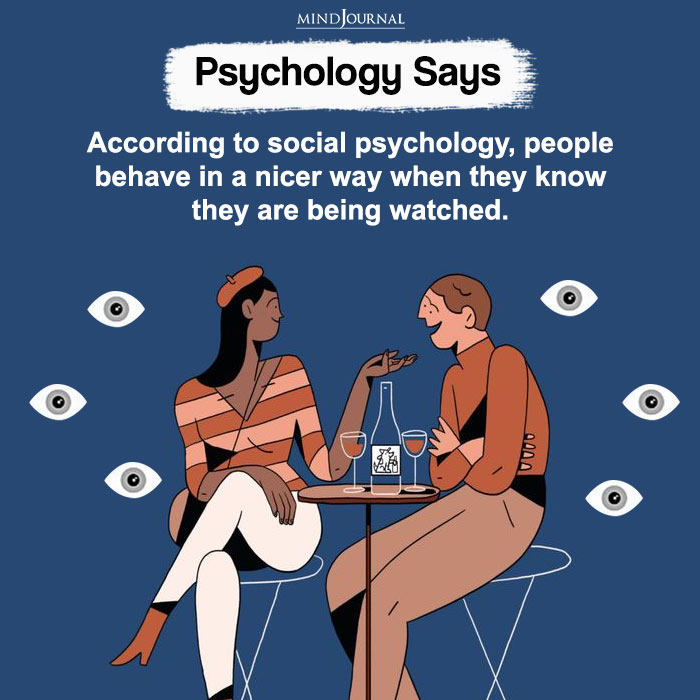Have you ever wondered how the human mind works? What about the science behind our personality behaviors and reactions? Exploring the different branches of psychology can help us find out the answers.
How many branches of psychology are there?
Psychology is a fascinating and diverse field that combines science to help us understand the human mind and behavior. There are various psychology branches, and each of them provides a clear perspective and understanding of the different areas of study in psychology.
Here are some of the main types of psychology –
1. Social Psychology
Social psychology is an intriguing area of study that delves into people’s interactions with one another and their social surroundings.

Social psychologists use their knowledge of human behavior and social dynamics to improve outcomes in areas such as health, education, business, and public policy.
Related – 35 Examples Of Paradox In Human Behavior That Will Blow Your Mind
Here are some examples of how social psychology is applied –
- Social psychologists develop programs aimed at promoting positive social behavior. These programs can be used in a variety of settings, including schools, workplaces, and communities.
- They use their knowledge of persuasion and consumer behavior to design effective advertising campaigns.
- They work in conflict resolution, helping individuals and groups to resolve conflicts and work together more effectively.
- They use their knowledge of social norms, stereotypes, and intergroup dynamics to create inclusive environments that celebrate diversity.
- They work to promote social change and advocate for policies that address social issues such as inequality and injustice.
2. Organizational Psychology
Organizational psychology, also known as industrial-organizational psychology, is the study of how psychology can be applied to the workplace.
Organizational psychologists work with businesses to help them develop through better hiring and training practices, improving employee motivation and creating effective leadership structures.
Here are some examples of how organizational psychology is applied in the workplace –
- Organizational psychologists help organizations select the best candidates for jobs through effective selection procedures, including assessment tests and interviews.
- They assist organizations in developing effective performance management systems that evaluate an employee’s performance and provide feedback to employees to improve their job performance.
- They provide leadership development training, and coach potential leaders to enhance their skills.
- They help organizations recruit and retain a diverse workforce and help employees work effectively with people from different backgrounds.
- They help organizations to create flexible work arrangements, such as telecommuting and flexible scheduling, and develop programs that help employees manage stress and achieve work-life balance.
Related – 22 Tips To Improve Mental Health In The Workplace
3. Forensic Psychology
Forensic psychology is a specialized field that deals with the intersection between psychology and the legal system.
Forensic psychologists act as a bridge between psychology and the law. One of the key roles of forensic psychologists is to work with criminal offenders.
Here are some examples of how forensic psychology is applied in the legal system –
- Forensic psychologists can help judges and juries to understand the behavior of the individuals involved in the case.
- They can provide psychological insight into the behavior of suspects, which can be valuable in solving crimes and bringing offenders to justice.
- Forensic psychologists also provide training to law enforcement officials and lawyers which can lead to better outcomes in the legal system.
- Their research can help develop policies and practices, leading to more effective strategies for addressing criminal behavior.
4. Health Psychology
Health psychology is a subfield of psychology that focuses on how psychological factors influence health and illness.
Health psychologists work in hospitals, clinics, or private practices, and help patients with wide range of health issues, including chronic pain, obesity, and addiction.
Here are some examples of how health psychology is applied to healthcare –
- Health psychologists work with healthcare providers and develop programs to encourage exercise, healthy eating, smoking cessation, and stress reduction.
- They help patients by educating them about medication regimens and helping them manage side effects.
- They work with patients to help them manage their conditions and improve their quality of life. By developing self-management plans, and providing support to patients and their families.
- They develop pain management plans that help patients develop coping strategies for managing their pain.
5. Educational Psychology
A field of psychology that focuses on how people learn and how educational practices can be optimized to promote learning.
Educational psychologists work with schools or universities to develop effective teaching methods, identify and address learning disabilities, and evaluate the effectiveness of educational programs.
Here are some examples of how educational psychologists work with schools and universities –
- Educational psychologists collaborate with teachers and administrators to develop effective teaching methods and strategies that meet the needs of all learners.
- They assess students who are struggling academically or behaviorally to identify learning disabilities or other developmental disorders.
- They work with teachers and parents to develop intervention plans that support the student’s academic and social-emotional needs.
- They also provide counseling and support services to students who are experiencing emotional or behavioral challenges that affect their academic performance.
6. Cognitive psychology
Cognitive psychology is a field of psychology that explores how our mind processes information and makes sense of the world around us.
Cognitive psychology research has important applications in areas such as education, healthcare, and technology, and has the potential to improve our understanding of how we can optimize our cognitive function to lead more fulfilling lives.
This field also has important implications for understanding and treating psychological disorders. For instance, cognitive behavioral therapy, a type of therapy commonly used to treat disorders such as anxiety and depression, is based on the principles of cognitive psychology.
Related – What Is CBT And How Does It Work?
Here are some examples of how cognitive psychologists study mental processes –
- Cognitive psychologists investigate how attention works and how it can be improved. For instance, they study the effects of multitasking on attention and the impact of distractions on task performance.
- They investigate the role of attention in perception, how perception can be influenced by expectations and biases, and how sensory information is processed in the brain.
- They study the different types of memory, such as short-term and long-term memory, and develop strategies for enhancing memory retention and recall.
- They investigate the role of reasoning and decision-making in problem-solving, as well as the impact of biases on decision-making processes.
Takeaway
To become an expert in any branch of psychology, extensive study is required. Whether you’re interested in educational psychology or simply want to understand how the human mind works, specialization in any area requires a deep understanding of its theories, concepts, and research methods.
However, the effort invested in studying and specializing in these branches of psychology can be rewarding, providing opportunities to help individuals, families, and communities to overcome challenges and improve their quality of life.









Leave a Reply
You must be logged in to post a comment.